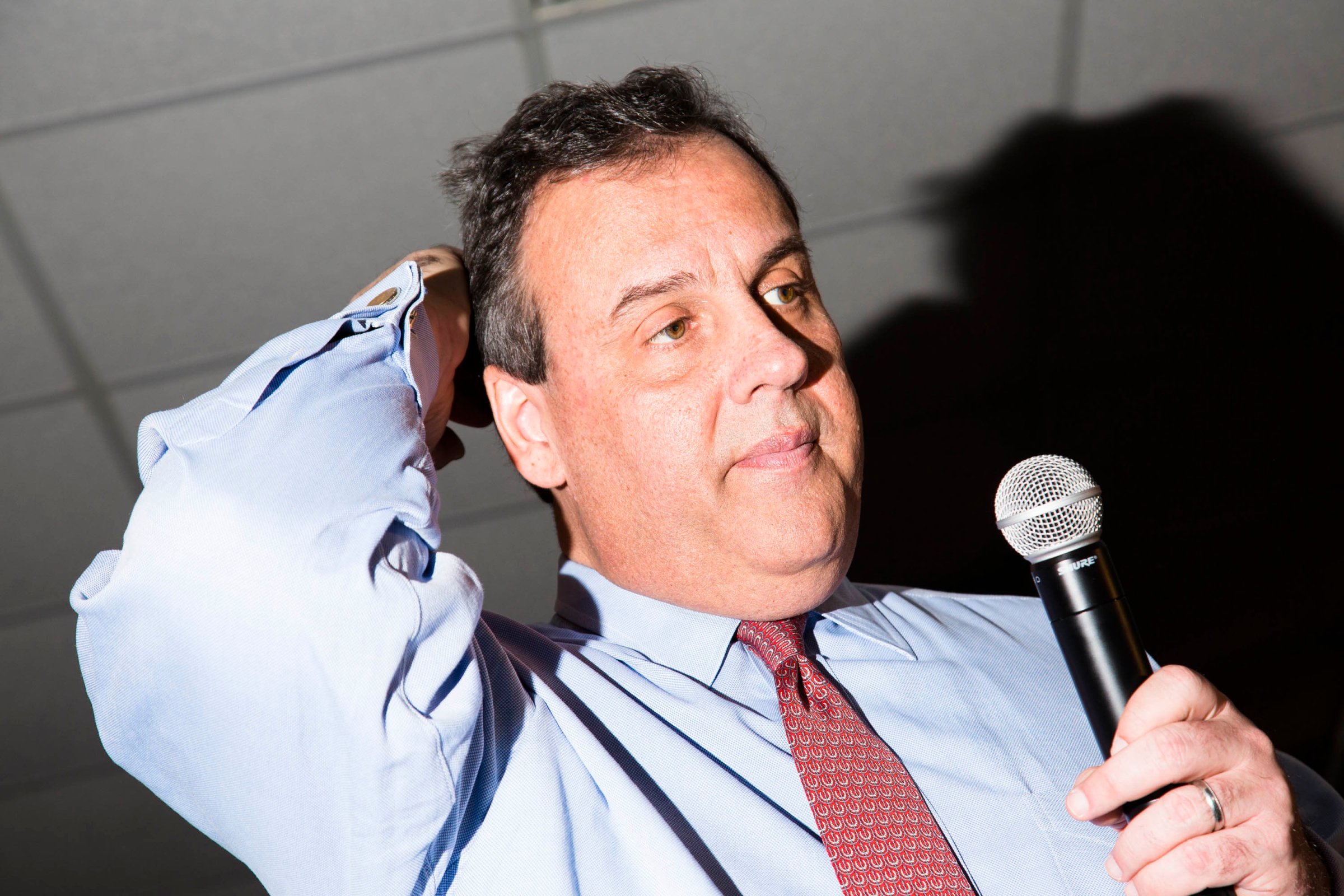
New Jersey Gov. Chris Christie, who once looked like a front-runner for the Republican presidential nomination but was hampered from the start of his campaign by a traffic scandal and a sluggish economy at home, dropped out of the race Wednesday. His departure followed a disappointing sixth-place finish in Tuesday’s New Hampshire primary, on which he had staked his White House hopes.
“I ran for president with the message that the government needs to once again work for the people, not the people work for the government,” Christie said on Facebook. “And while running for president I tried to reinforce what I have always believed – that speaking your mind matters, that experience matters, that competence matters and that it will always matter in leading our nation. That message was heard by and stood for by a lot of people, but just not enough and that’s ok.”
“I have both won elections that I was supposed to lose and I’ve lost elections I was supposed to win and what that means is you never know what will happen,” Christie added. “That is both the magic and the mystery of politics – you never quite know when which is going to happen, even when you think you do.”
Christie was a favored candidate of Republican leaders in the days following his 2013 winning reelection bid. His success in a blue state, his fundraising prowess as one of the party’s most high-profile governors, and his brash, often unscripted style of politics seemed like a good fit for the party after its defeat at the hands of President Obama in 2012. But that plan was knocked off course even before his campaign started, most famously by the so-called “Bridgegate” scandal—in which emails showed allies of Christie’s had shut down a New Jersey town’s access to the George Washington Bridge as political retaliation. Christie has steadfastly denied any knowledge of the affair and no evidence has emerged otherwise, but he never really recovered from the investigation of his administration.
As his more moderate profile was not well suited to an increasingly conservative Republican electorate that has gravitated to Donald Trump and Ted Cruz, he mostly parked his campaign in New Hampshire. He held dozens of town-hall style meetings in the hope that the Granite State, which has long rewarded retail-style politics, would reward him, too. He enjoyed moments in the spotlight, particularly when his fierce assault against Marco Rubio in last weekend’s Republican debate brought the Florida Senator’s rising campaign back to earth. But as conservative commentator Charles Krauthammer said Tuesday night on Fox News, it was essentially “a Kamikaze attack.” Christie finished with just a little more than 7% of the New Hampshire vote, behind his establishment rivals John Kasich, Jeb Bush and Rubio.
He had planned to travel from New Hampshire to South Carolina to begin campaigning for that state’s primary, but as the results came in Tuesday night, he said he would instead return to New Jersey “to take a deep breath” and reassess his prospects. He would not return to the campaign trail.
-With reporting by Zeke J Miller

More Must-Reads from TIME
- Donald Trump Is TIME's 2024 Person of the Year
- Why We Chose Trump as Person of the Year
- Is Intermittent Fasting Good or Bad for You?
- The 100 Must-Read Books of 2024
- The 20 Best Christmas TV Episodes
- Column: If Optimism Feels Ridiculous Now, Try Hope
- The Future of Climate Action Is Trade Policy
- Merle Bombardieri Is Helping People Make the Baby Decision
Contact us at letters@time.com